Banking and Financial Transactions in the Early Islamic Era
The significance of financial and commercial transactions within human social structures cannot be overstated. Formal economic and commercial regulations have existed across various ancient cultures and civilizations. Islam, as a comprehensive way of life and a refined worldview, intervenes meticulously in all facets of human existence. It puts forth its economic policies and financial principles, setting precise standards and regulations for financial and commercial transactions to ensure a balanced production and distribution of wealth.
Contrary to the common narrative, the history of banking does not solely begin in fourteenth-century Europe. A more accurate historical assessment reveals the presence of banking-like systems in early Islamic times. This aspect, unfortunately, remains marginalized in mainstream history. Islamic banking's omission from economic history mirrors the disregard of Muslim contributions in the field of science.
Even during the time of the Prophet Muḥammad ﷺ, we can discern systems akin to contemporary banking practices. Following the construction of Masjid Nabawi (Prophet’s mosque in Medīnah), the Prophet ﷺ's first endeavor upon arriving in Medina was to establish a marketplace or souq. This move was facilitated by the fraternal relationship forged between the Anṣārs, the early Muslim converts and supporters of the Prophet Muhammad in Medina and the Muhājirs, Muslim emigrants from Mecca. This partnership allowed Muslims to engage with the Jewish community, which held economic influence in Medina. Interestingly, Muslims traded in the Bani Qainaqā[i] Souq run by Jews, which operated on interest-based principles (Shabbah)[ii]
Recognizing the need for an interest-free marketplace aligned with Islamic principles, the Prophet ﷺ initially intended to establish it near the Jewish Souq. However, due to opposition from the Jewish leader Ka'b bin Ashraf, the Prophet ﷺ relocated the marketplace. He declared, "This is your Souq. You will not lack comfort here, and no tax will be charged on this"[iii]. The Souq, established by the Prophet ﷺ, spanned a vast area devoid of specific structures. It operated on a first-come, first-served basis without reservations. The Prophet ﷺ even prohibited one of his companions from pitching a tent there.[iv]
Deposit Banking
Modern banks function primarily through deposit banking, where customers' money is held as deposits, utilized for profitable transactions, and returned to them upon request. Interestingly, Islamic history records a similar financial practice during the prophetic period.
Zubair bin Al-Awwam (RA), a prominent companion of the Prophet ﷺ, engaged in a similar arrangement. When individuals entrusted money to Zubair (RA) for safekeeping, he treated it as a loan rather than a mere deposit, thus adhering to the concept of Wadi'a (safekeeping)[v]. This approach ensured that even if the funds were exposed to loss, Zubair (RA) was obligated to return them. Simultaneously, the loan arrangement allowed him to employ the amount for business ventures and trades, generating profit.
Consequently, the sum deposited with Zubair (RA) amounted to approximately 2.2 million Dirhams (a silver currency of the time) at the time of his passing[vi]. His total assets surpassed fifty million Dirhams[vii]. His son Abdullah waited for four years without distributing the inheritance to repay the depositors[viii]. Some sources propose that his residences in Basra, Kufa, and Egypt served as branches for his banking operations.
Payment Banking
Various payment methods form a vital component of banking, enabling the secure transfer of funds from one location to another, facilitating swift transfers between individuals, and facilitating financial transactions. Currency exchange and trading also fall under this category.
The early period of Islam witnessed the emergence of primary forms of payment banking. For instance, Abdullah ibn Zubair (son of Zubair) settled in Makkah, receiving dirhams from pilgrims and merchants. He corresponded with his brother Miṣʕab in Kufa, Iraq, arranging for dirhams to be exchanged for these funds. This facilitated travelers and traders in their transactions[ix]. Similarly, Ibn Abbas (RA) also engaged in such dealings.
Transactions involving exchanges between dinārs (gold) and dirhams (silver) were also common. Abdullah ibn Umar (RA) recounted a practice where he would sell a camel for a dinār and accept dirhams instead, or vice versa. Seeking clarity, he consulted the Prophet ﷺ, who confirmed the acceptability of such transactions based on the value of the coins on that day. This even entailed referencing daily exchange rates[x].
The ḥawala (money transfer) system known as Saftaja[xi] was prevalent in the later Islamic world. Private moneylenders, known as 'ṣayrafī[xii]', controlled money exchange and availability in cities like Basra and Kufa. Instead of direct money transfers, 'ṣayrafis' issued Saftajas for this purpose. This practice lent its name to modern banking-related terms such as Maṣrif (Bank), ṣarafa (Money Exchange), and ṣarraf (Teller).
While the world attributes the origin of the first 'check' to a London goldsmith in the 18th century, Islamic texts[xiii] tell of a 'check-like' document issued by Saifudawlah Al-Hamdāni, the emir of Aleppo, in the 4th century Hijra. This document instructed the payment of 1,000 dinārs to the bearer upon presenting it to a currency changer in Baghdad. Such practices highlight the advanced financial transactions in the Islamic world well before Europe developed similar banking instruments.
The Arabic word 'ṣakk' is closely tied to 'check', originating from the Persian 'chuck', meaning 'writing'[xiv]. Arabic, lacking the "ch" sound, employs the letter "ṣ (ص)" to approximate such words[xv]. 'Ṣakk' initially referred to documents recording food grants from the public treasury. Its plural forms, 'ṣikak' and 'ṣukūk', appear in a hadith narrated by Abu Huraira (RA).
Narrated by Abu Hurairah: He said to Marwān, "Have you made permissible the sale of riba (usury)?" Marwan replied, "I have not done so." Abu Hurairah said, "Have you made permissible the sale of ṣakks (documents of food grants), while the Messenger of Allah ﷺ prohibited the sale of food until it is in possession (of the seller)?" Marwan then addressed the people and prohibited its sale[xvi].
In essence, this refers to the sale of food grant documents before the actual food collection. Abu Huraira points to the relevant laws concerning this process.
Ṣikak later evolved to encompass various financial transactions and actions. From the 2nd century Hijra (8th century CE) onward, Islamic texts predominantly used the term 'ṣakk' to denote a monetary claim on possessions. For instance, Imām Malik bin Anas, who passed away in 179 AH, discussed the scenario where an individual writes a debt to two people on a single 'ṣakk'[xvii]. Muhammad bin Hasan As-Shaibāni, a Hanafi scholar who died in 189 AH, delved into different types of ṣakk and associated fiqh rulings. In cases where someone lends money and receives a ṣakk, they specify a nominee (waṣiyy) to assume these debts upon their demise. As-Shaibani outlined the terminology for this purpose[xviii]. This showcases the sophisticated financial transactions in the Islamic world during the 8th century.
Imam Sarakhsi[xix] defines "ṣakk" as a liability document when discussing debt documents[xx]. Ultimately, the early Islamic society exhibited the practice of recording and transferring financial liabilities and rights through document certificates.
Loans & Financing
Modern banks primarily provide funds to businesspeople and those in need, ensuring liquidity. In early Islam, this function was carried out by the Muslim public treasury, 'Bait Al-Māl'.
The second Caliph, Umar bin Khaṭṭāb (RA), organized Bait Al-Māl and appointed Abdullah bin Arqam (RA) as its treasurer. Umar (RA) introduced a meticulous record-keeping system (Diwan) to maintain accurate accounts. He also personally borrowed from Bait Al-Māl when in need[xxi]. At the time of his passing, Umar (RA) had a total debt of eighty thousand dirhams. Records indicate that the third Caliph, Uthmān (RA)[xxii], and prominent Companions like Saa’d bin Abī Waqqās[xxiii] often borrowed from Bait al-Māl for business ventures.
In summary, various banking transactions trace back to the early Islamic era. Rulers and scholars of their times worked to develop these practices in accordance with Islamic values, resulting in thorough discussions of the fiqh (Islamic jurisprudence) validity of these transactions. During the Islamic renaissance's golden age, Middle Eastern cities stood as global economic hubs.
Subsequently, stagnation and setbacks within the Islamic world reflected in its economic realm. By the 17th century, the interest-based banking system originating in Europe had become the dominant force in the global financial landscape due to various political and economic factors.
Endnotes
[i] Banu Qainaqaa: : A Jewish tribe lived in Medina at the time of Prophet
[ii] Ibn Shabba ( H. 204), Tarīkh Al-Madīnah 1:304
[iii] Sunan Ibn Majah 2:751
[iv] Samhūdī Wafā Al – Wafā 2:249
[v] Ṣaḥīḥ al- Bukhārī, 2961
[vi] Ṣaḥīḥ al-Bukhārī, 2961
[vii] Ṣaḥīḥ al-Bukhārī, Fat’ḥ al- Bāri 6:262
[viii] ibid
[ix] Imam Sarakhsī – Al Mabsūt 14:37.
[x] Ḥakim , Al – Mustadrak
[xi] Saftaja: which means a certificate or document used for these money transfers. It was a form of early financial instrument used for facilitating transactions and transferring funds in the Islamic economic context.
[xii] Ṣayrafī: Arabic term for private moneylenders involved in money exchange.
[xiii] Muhammad Bin Abdul Malik Al – Hamdāni ( D. 521 AH), Takmila Tarīkh Al-Ṭabri : 11:412
[xiv] Lisān al-Arab ‘, Ibn Manzūr , 10:45
[xv] Al – Taqrīb Li Usūl al – Taʕarīb , Ṭāhir bin Ṣālih Al – Jazāiri 52
[xvi] Ṣaḥīḥ Muslim , Kitab Al-Buyuʕa , Hadith Number : 1528
[xvii] Mudawwanah, Mālik Bin Anas ( RA ), 4:101
[xviii] Al – Aṣl , Muhammad Al-Shaibāni 9:502
[xix] Imam Sarakhsi: Islamic scholar and famous Hanafi jurist. (Died on 483 AH)
[xx] Al – Mabsūt , 18: 9'4
[xxi] Al - Suyūthi , Tarīkh Al - Khulafā :111
[xxii] Ibn Saʕ'd , Ṭabaqāt Al-Kubrā 6:73
[xxiii] Ibn Asākir, Tarīkh Dimashq – 20:344
About the author: Faisal Niyaz (Nihas Abdul Majeed) is the Founder and CEO of Mission Soft Foundation, the parent organization of Islamonweb. He holds a Master's degree in Islamic Studies from Darul Huda Islamic University and an MBA from Assam Down Town University. His expertise lies in Islamic economics, finance, and Muslim world politics. He has authored a book on the Fiqh of Islamic finance transactions in Malayalam.
Disclaimer
The views expressed in this article are the author’s own and do not necessarily mirror Islamonweb’s editorial stance.

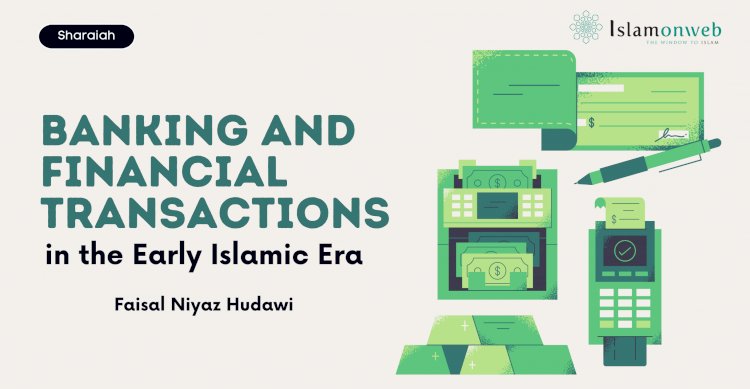


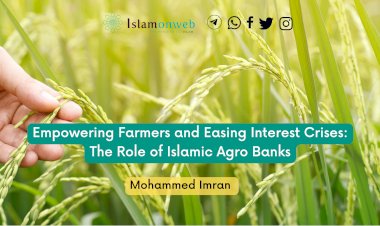
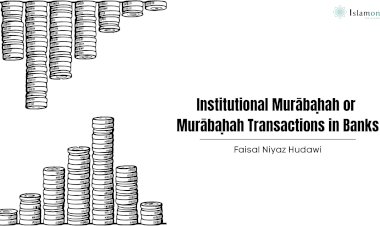

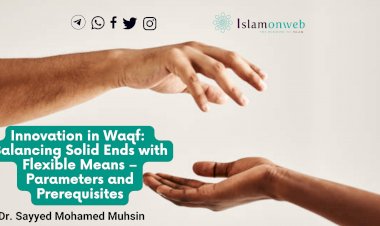

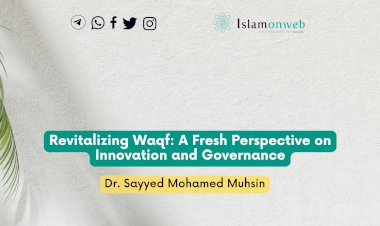














Leave A Comment